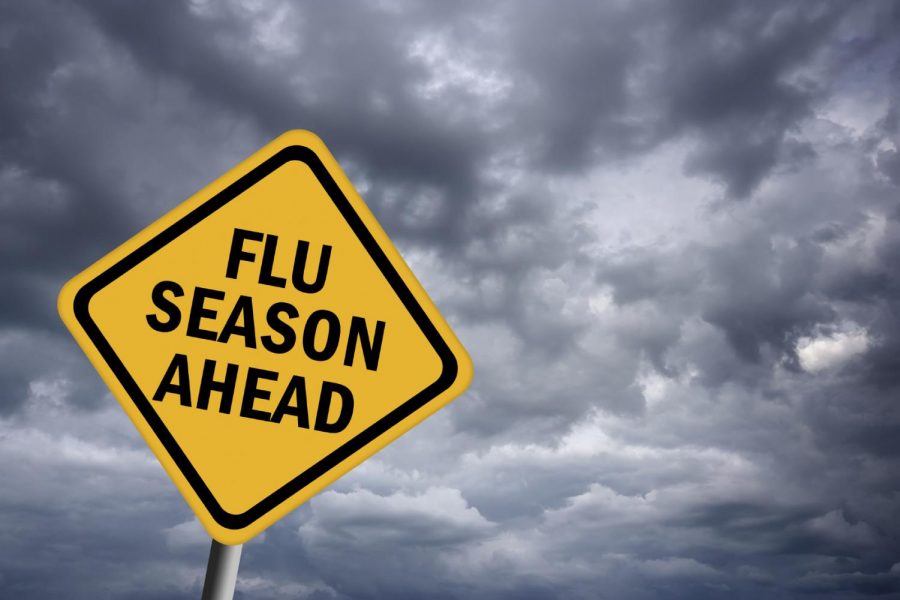Fighting Cold and Flu Season
Understanding the Signs and Staying Healthy
November 5, 2019
Winter is coming which means cold and flu season. Thanksgiving break is right around the corner and no one wants to spend their break sick in bed. Through an email, Beverly Klein, with over 10 years of experience as an RN at Mayo Clinic in Rochester, Minn. gave some insight into how to stay healthy and what to do if you do come down with some illness.
Knowing when cold and flu season starts is the first step in preventing catching any illnesses.
“According to the CDC, typically, cold/flu season starts in the fall (October) and ends in the spring,” Klein said. “ Peak of the season is usually December to February.”
Individuals can start fighting the cold and flu season early by going and getting a flu shot and practicing good habits.
“Good things to practice regularly, is hand washing, covering mouth and nose if coughing or sneezing, getting enough sleep, staying hydrated, staying active and keeping areas clean,” Klein said.
Understanding what the flu is and the signs is a great way to fight it off early. People often confuse the stomach flu and the flu, so what are the differences?
“The stomach flu is an upset stomach, diarrhea and or vomiting,” Klein said. “The flu is a respiratory illness (nose, throat, and lungs.) With the flu, you can have a decrease in appetite and an upset stomach, but it is a viral respiratory illness.”
Some common symptoms of the flu according to Mayo Clinic are aching muscles, chills and sweats, a fever over 100.4 Fahrenheit, headache, a dry persistent cough, fatigue and weakness, nasal congestion and/ or sore throat.
“If you do have symptoms of the flu, the best thing to do is stay home and take care of yourself.” Klein said. “Take Tylenol for headaches and Ibuprofen for a fever. There isn’t a need to go into the doctor’s office unless a person is at high risk for complications. If a person is at high risk for complications, a doctor’s appointment is advised and will possibly get an antiviral medication to help prevent the person from having complications. If a person does have the flu and must go somewhere, be sure to wear a medical mask that covers the nose and mouth.”
Even with healthy habits in practice, sometimes individuals can still get sick. Watching your health and taking the right steps to get well not only benefits you, but the people around you as well. What should individuals do if they are feeling unwell?
“Rest,” Klein said. “Hydration and water with lemon or honey to help soothe the throat. Washing hands frequently, either with soap and water or hand sanitizer. Stay home until you are feeling better, which usually is about 24 hours after no longer having a fever. The flu is contagious, so attempt to stay in one location to decrease the chance of spreading it to the people around you.”
When recovering from any illness, be mindful of your body. Try not to push yourself too hard or else it may make you feel worse. If you are active, don’t jump back into your regular workout routine. Start by doing light exercises like walking to allow your body to slowly adjust back to normal.
For students with any questions or concerns, Student Health Services is located in McCannel Hall Room 100. They can be reached at 701.777.4500 or email [email protected].












